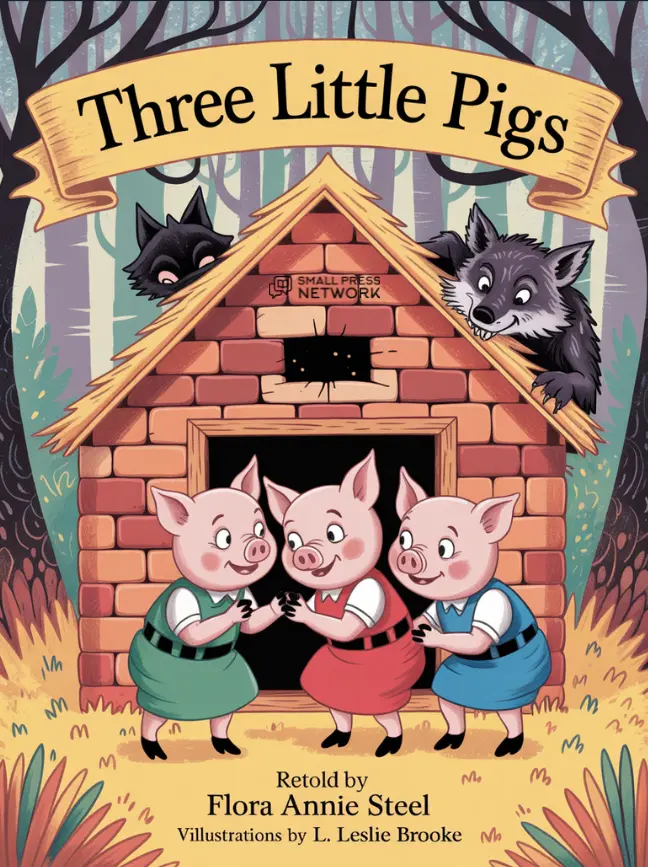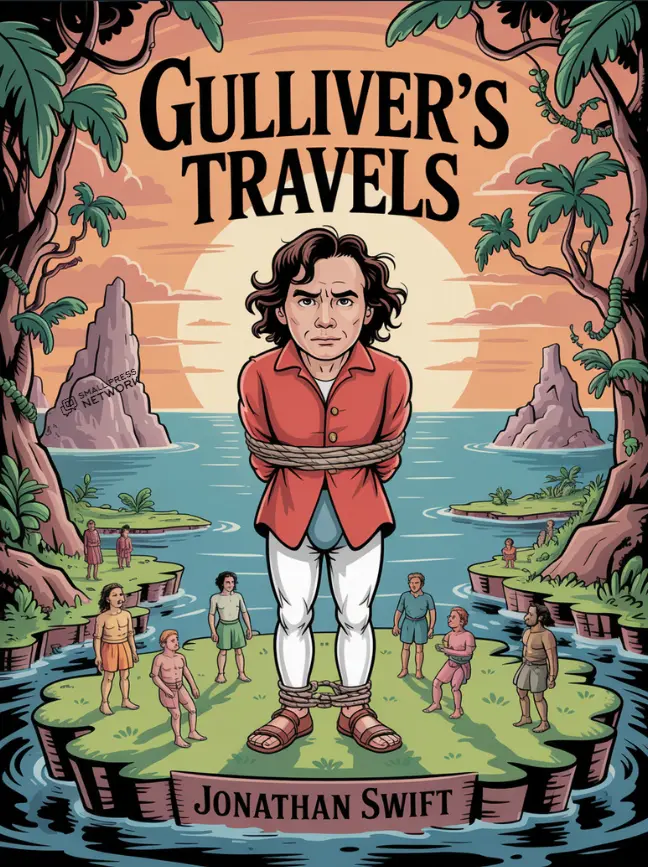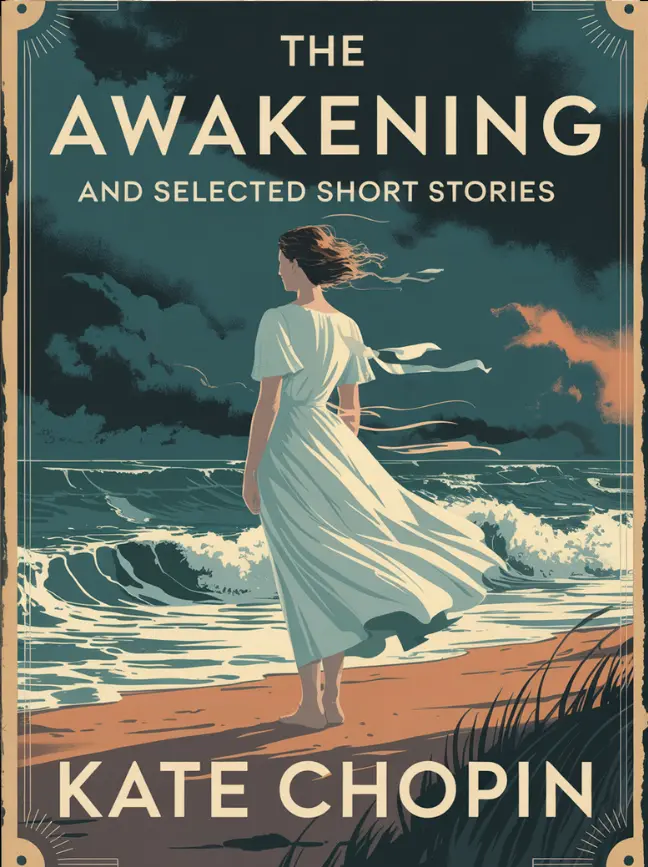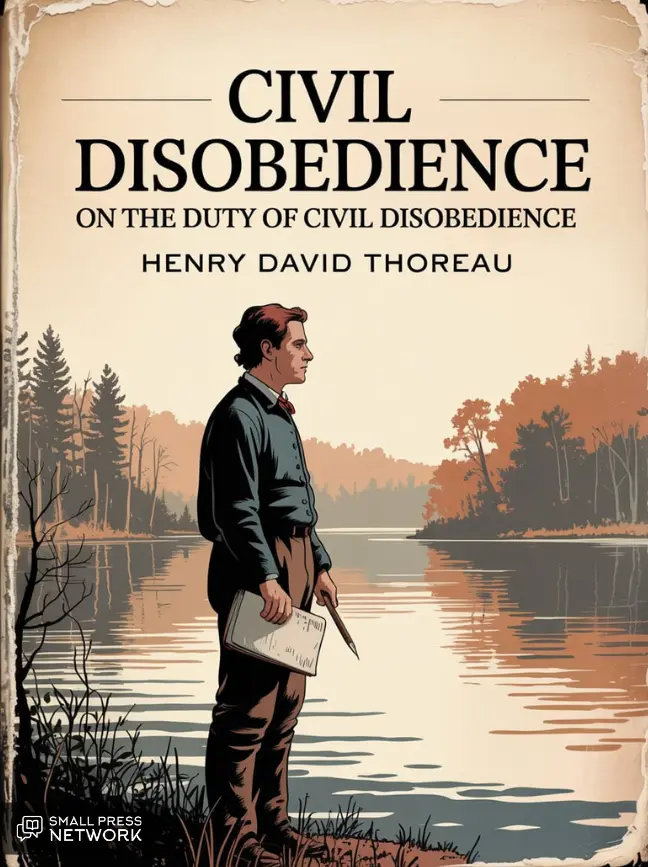146
Chapter XIII
That same night, having taken leave of the Minister of War, Bolkónski set off to rejoin the army, not knowing where he would find it and fearing to be captured by the French on the way to Krems.
In Brünn everybody attached to the court was packing up, and the heavy baggage was already being dispatched to Olmütz. Near Hetzelsdorf Prince Andrew struck the high road along which the Russian army was moving with great haste and in the greatest disorder. The road was so obstructed with carts that it was impossible to get by in a carriage. Prince Andrew took a horse and a Cossack from a Cossack commander, and hungry and weary, making his way past the baggage wagons, rode in search of the commander in chief and of his own luggage. Very sinister reports of the position of the army reached him as he went along, and the appearance of the troops in their disorderly flight confirmed these rumors.
“Cette armée russe que l’or de l’Angleterre a transportée des extrémités de l’univers, nous allons lui faire éprouver le même sort—(le sort de l’armée d’Ulm).” 33 He remembered these words in Bonaparte’s address to his army at the beginning of the campaign, and they awoke in him astonishment at the genius of his hero, a feeling of wounded pride, and a hope of glory. “And should there be nothing left but to die?” he thought. “Well, if need be, I shall do it no worse than others.”
He looked with disdain at the endless confused mass of detachments, carts, guns, artillery, and again baggage wagons and vehicles of all kinds overtaking one another and blocking the muddy road, three and sometimes four abreast. From all sides, behind and before, as far as ear could reach, there were the rattle of wheels, the creaking of carts and gun carriages, the tramp of horses, the crack of whips, shouts, the urging of horses, and the swearing of soldiers, orderlies, and officers. All along the sides of the road fallen horses were to be seen, some flayed, some not, and broken-down carts beside which solitary soldiers sat waiting for something, and again soldiers straggling from their companies, crowds of whom set off to the neighboring villages, or returned from them dragging sheep, fowls, hay, and bulging sacks.
At each ascent or descent of the road the crowds were yet denser and the din of shouting more incessant. Soldiers floundering knee-deep in mud pushed the guns and wagons themselves. Whips cracked, hoofs slipped, traces broke, and lungs were strained with shouting. The officers directing the march rode backward and forward between the carts.
Their voices were but feebly heard amid the uproar and one saw by their faces that they despaired of the possibility of checking this disorder.
“Here is our dear Orthodox Russian army,” thought Bolkónski, recalling Bilíbin’s words.
Wishing to find out where the commander in chief was, he rode up to a convoy. Directly opposite to him came a strange one-horse vehicle, evidently rigged up by soldiers out of any available materials and looking like something between a cart, a cabriolet, and a calèche. A soldier was driving, and a woman enveloped in shawls sat behind the apron under the leather hood of the vehicle. Prince Andrew rode up and was just putting his question to a soldier when his attention was diverted by the desperate shrieks of the woman in the vehicle. An officer in charge of transport was beating the soldier who was driving the woman’s vehicle for trying to get ahead of others, and the strokes of his whip fell on the apron of the equipage.
33
“That Russian army which has been brought from the ends of the earth by English gold, we shall cause to share the same fate—(the fate of the army at Ulm).”
147
The woman screamed piercingly. Seeing Prince Andrew she leaned out from behind the apron and, waving her thin arms from under the woolen shawl, cried: “Mr. Aide-de-camp! Mr. Aide-de-camp!… For heaven’s sake… Protect me! What will become of us? I am the wife of the doctor of the Seventh Chasseurs…. They won’t let us pass, we are left behind and have lost our people…”
“I’ll flatten you into a pancake!” shouted the angry officer to the soldier. “Turn back with your slut!”
“Mr. Aide-de-camp! Help me!… What does it all mean?” screamed the doctor’s wife.
“Kindly let this cart pass. Don’t you see it’s a woman?” said Prince Andrew riding up to the officer.
The officer glanced at him, and without replying turned again to the soldier. “I’ll teach you to push on!… Back!”
“Let them pass, I tell you!” repeated Prince Andrew, compressing his lips.
“And who are you?” cried the officer, turning on him with tipsy rage, “who are you? Are you in command here? Eh? I am commander here, not you! Go back or I’ll flatten you into a pancake,” repeated he. This expression evidently pleased him.
“That was a nice snub for the little aide-de-camp,” came a voice from behind.
Prince Andrew saw that the officer was in that state of senseless, tipsy rage when a man does not know what he is saying. He saw that his championship of the doctor’s wife in her queer trap might expose him to what he dreaded more than anything in the world—to ridicule; but his instinct urged him on. Before the officer finished his sentence Prince Andrew, his face distorted with fury, rode up to him and raised his riding whip.
“Kind…ly let—them—pass!”
The officer flourished his arm and hastily rode away.
“It’s all the fault of these fellows on the staff that there’s this disorder,” he muttered. “Do as you like.”
Prince Andrew without lifting his eyes rode hastily away from the doctor’s wife, who was calling him her deliverer, and recalling with a sense of disgust the minutest details of this humiliating scene he galloped on to the village where he was told who the commander in chief was.
On reaching the village he dismounted and went to the nearest house, intending to rest if but for a moment, eat something, and try to sort out the stinging and tormenting thoughts that confused his mind. “This is a mob of scoundrels and not an army,” he was thinking as he went up to the window of the first house, when a familiar voice called him by name.
He turned round. Nesvítski’s handsome face looked out of the little window. Nesvítski, moving his moist lips as he chewed something, and flourishing his arm, called him to enter.
“Bolkónski! Bolkónski!… Don’t you hear? Eh? Come quick…” he shouted.
Entering the house, Prince Andrew saw Nesvítski and another adjutant having something to eat. They hastily turned round to him asking if he had any news. On their familiar faces he read agitation and alarm. This was particularly noticeable on Nesvítski’s usually laughing countenance.
“Where is the commander in chief?” asked Bolkónski.
148
“Here, in that house,” answered the adjutant.
“Well, is it true that it’s peace and capitulation?” asked Nesvítski.
“I was going to ask you. I know nothing except that it was all I could do to get here.”
“And we, my dear boy! It’s terrible! I was wrong to laugh at Mack, we’re getting it still worse,” said Nesvítski. “But sit down and have something to eat.”
“You won’t be able to find either your baggage or anything else now, Prince. And God only knows where your man Peter is,” said the other adjutant.
“Where are headquarters?”
“We are to spend the night in Znaim.”
“Well, I have got all I need into packs for two horses,” said Nesvítski. “They’ve made up splendid packs for me—fit to cross the Bohemian mountains with. It’s a bad lookout, old fellow! But what’s the matter with you? You must be ill to shiver like that,” he added, noticing that Prince Andrew winced as at an electric shock.
“It’s nothing,” replied Prince Andrew.
He had just remembered his recent encounter with the doctor’s wife and the convoy officer.
“What is the commander in chief doing here?” he asked.
“I can’t make out at all,” said Nesvítski.
“Well, all I can make out is that everything is abominable, abominable, quite abominable!” said Prince Andrew, and he went off to the house where the commander in chief was.
Passing by Kutúzov’s carriage and the exhausted saddle horses of his suite, with their Cossacks who were talking loudly together, Prince Andrew entered the passage. Kutúzov himself, he was told, was in the house with Prince Bagratión and Weyrother. Weyrother was the Austrian general who had succeeded Schmidt. In the passage little Kozlóvski was squatting on his heels in front of a clerk. The clerk, with cuffs turned up, was hastily writing at a tub turned bottom upwards. Kozlóvski’s face looked worn—he too had evidently not slept all night. He glanced at Prince Andrew and did not even nod to him.
“Second line… have you written it?” he continued dictating to the clerk. “The Kiev Grenadiers, Podolian…”
“One can’t write so fast, your honor,” said the clerk, glancing angrily and disrespectfully at Kozlóvski.
Through the door came the sounds of Kutúzov’s voice, excited and dissatisfied, interrupted by another, an unfamiliar voice. From the sound of these voices, the inattentive way Kozlóvski looked at him, the disrespectful manner of the exhausted clerk, the fact that the clerk and Kozlóvski were squatting on the floor by a tub so near to the commander in chief, and from the noisy laughter of the Cossacks holding the horses near the window, Prince Andrew felt that something important and disastrous was about to happen.
He turned to Kozlóvski with urgent questions.
“Immediately, Prince,” said Kozlóvski. “Dispositions for Bagratión.”
“What about capitulation?”
“Nothing of the sort. Orders are issued for a battle.”
149
Prince Andrew moved toward the door from whence voices were heard. Just as he was going to open it the sounds ceased, the door opened, and Kutúzov with his eagle nose and puffy face appeared in the doorway. Prince Andrew stood right in front of Kutúzov but the expression of the commander in chief’s one sound eye showed him to be so preoccupied with thoughts and anxieties as to be oblivious of his presence. He looked straight at his adjutant’s face without recognizing him.
“Well, have you finished?” said he to Kozlóvski.
“One moment, your excellency.”
Bagratión, a gaunt middle-aged man of medium height with a firm, impassive face of Oriental type, came out after the commander in chief.
“I have the honor to present myself,” repeated Prince Andrew rather loudly, handing Kutúzov an envelope.
“Ah, from Vienna? Very good. Later, later!”
Kutúzov went out into the porch with Bagratión.
“Well, good-by, Prince,” said he to Bagratión. “My blessing, and may Christ be with you in your great endeavor!”
His face suddenly softened and tears came into his eyes. With his left hand he drew Bagratión toward him, and with his right, on which he wore a ring, he made the sign of the cross over him with a gesture evidently habitual, offering his puffy cheek, but Bagratión kissed him on the neck instead.
“Christ be with you!” Kutúzov repeated and went toward his carriage. “Get in with me,” said he to Bolkónski.
“Your excellency, I should like to be of use here. Allow me to remain with Prince Bagratión’s detachment.”
“Get in,” said Kutúzov, and noticing that Bolkónski still delayed, he added: “I need good officers myself, need them myself!”
They got into the carriage and drove for a few minutes in silence.
“There is still much, much before us,” he said, as if with an old man’s penetration he understood all that was passing in Bolkónski’s mind. “If a tenth part of his detachment returns I shall thank God,” he added as if speaking to himself.
Prince Andrew glanced at Kutúzov’s face only a foot distant from him and involuntarily noticed the carefully washed seams of the scar near his temple, where an Ismail bullet had pierced his skull, and the empty eye socket. “Yes, he has a right to speak so calmly of those men’s death,” thought Bolkónski.
“That is why I beg to be sent to that detachment,” he said.
Kutúzov did not reply. He seemed to have forgotten what he had been saying, and sat plunged in thought. Five minutes later, gently swaying on the soft springs of the carriage, he turned to Prince Andrew. There was not a trace of agitation on his face. With delicate irony he questioned Prince Andrew about the details of his interview with the Emperor, about the remarks he had heard at court concerning the Krems affair, and about some ladies they both knew.





